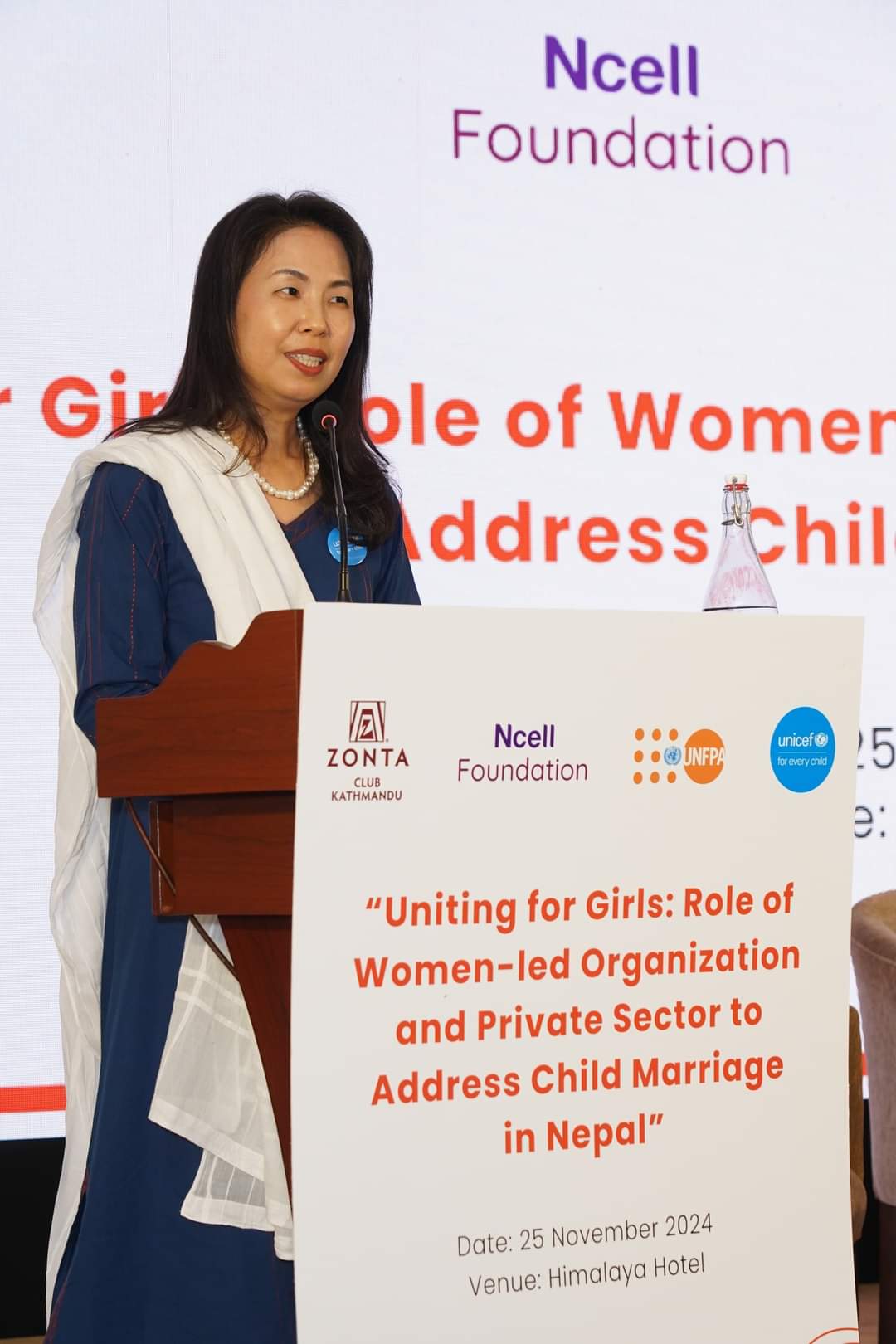November 26, 2024 Lalitpur, Nepal
A collective effort to eradicate child marriage took center stage at a special program organized yesterday to mark the beginning of the 16 Days of Activism Against Gender-Based Violence (GBV). Hosted by ZONTA Nepal, Ncell Foundation, UNFPA, and UNICEF, the event brought together key stakeholders to raise awareness and inspire action against one of Nepal’s most pressing social issues.
The highlight of the program was the launch of the powerful music video “Shirai Mai Phurke Ribbon”, produced in collaboration with UNICEF, UNFPA, SDG Studio, and celebrated artist Prakash Saput. The video vividly portrays the harsh realities of child marriage and its long-lasting impacts on young girls and boys, calling for urgent intervention to end the practice.
Addressing the gathering, ZONTA Nepal President Bina Rana and Dipak Dhakal, Under Secretary from the Ministry of Women, Children, and Senior Citizens, stressed the need for a unified, multi-sectoral approach to combat child marriage. They emphasized that poverty, lack of education, and entrenched patriarchal values remain the root causes and require concerted action across all sectors.
A dynamic panel discussion featuring experts from the private sector, women-led organizations, and youth representatives delved deeper into strategies to address these systemic issues. Panelists highlighted the importance of community-based initiatives, legal reforms, and education to empower young girls and their families.
Another significant moment of the day was the launch of a GBV booklet by ZONTA Nepal, which provides crucial resources and guidelines to tackle gender-based violence effectively.
Speaking at the conclusion of the event, UNICEF Nepal’s Deputy Representative Jee Hyun Rah expressed the collective resolve of the participants. “By joining forces, we aim to break the cycle of child marriage and empower women and girls to reach their full potential,” she stated. The event underscored the importance of collaborative action to end child marriage, which affects nearly 40% of girls in Nepal before the age of 18, according to UNICEF. As Nepal continues its fight against this harmful practice, partnerships among government agencies, private organizations, and international bodies will remain essential.
The event underscored the importance of collaborative action to end child marriage, which affects nearly 40% of girls in Nepal before the age of 18, according to UNICEF. As Nepal continues its fight against this harmful practice, partnerships among government agencies, private organizations, and international bodies will remain essential.
This program serves as a reminder of the need for vigilance and action to protect the rights of children and create a future free from child marriage.